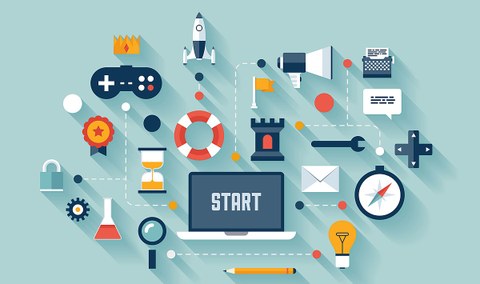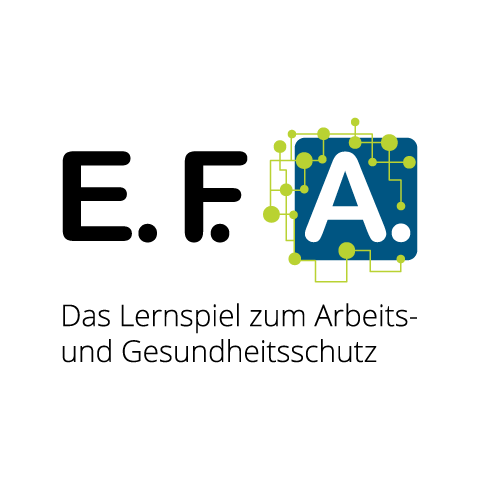Digitale Lern- und Spielkulturen
Der Digitale Wandel kennzeichnet tiefgreifende kulturelle Veränderungsprozesse, die in alle Lebensbereiche hineinwirken. Auch im Bildungssektor werden diese Einflüsse deutlich: Durch die Nutzung digitaler Technologien verändern sich nicht nur Lehr- und Lernprozesse, sondern auch die zugrundeliegenden Werte und Paradigmen. Deklariert im ‚Shift from teaching to learning‘ rücken die Lernenden ins Zentrum. Um ihnen und ihren Bedürfnissen Rechnung zu tragen, wird die lernzielorientierte Bildungsplanung ergänzt durch Learning Experience Design. Dabei steht die Förderung von individuellen Lernerfahrungen und -erlebnissen im Fokus. Hierin diffundieren Konzepte und Ideen aus der Spielentwicklungen, da hier traditionell eine starke Auseinandersetzung mit den Bedürfnissen der Zielgruppe stattfindet, was sich u. a. in Entwicklungsparadigmen wie Design Thinking widerspiegelt. Zudem stellen Spiele originäre Lernstrategien dar. Die Nutzung von (digitalen) Spielelementen schafft motivations-, emotions- und transferförderliche Lernsituationen und unterstützt damit die Individualisierung von Lehr- und Lernprozessen.
Anliegen
Im Forschungsfeld „Digitale Lern- und Spielkulturen“ beforschen Wissenschaftler*innen aus verschiedenen Disziplinen gemeinsam Potenziale und Risiken von Game Based Learning, Serious Games und Gamification. Zudem stehen der Entwicklungsprozess von Spielkonzepten und -strategien sowie deren Einsatzszenarien in der Kompetenz- und Personalentwicklung sowie der Organisationsgestaltung im Mittelpunkt der Forschung. Die Beteiligung am wissenschaftlichen Diskurs dient dazu, den Einsatz von Konzepten und Ideen aus der Spielentwicklung im Rahmen von lernerzentrierten Bildungsangeboten kritisch zu beleuchten.
Zur Gemeinschaft digitaler Lern- und Spielkulturen geht es hier entlang: https://edludo.codip.tu-dresden.de
Mit dem Projekt E.F.A. soll der Kompetenzerwerb sächsischer Kleinst- und Kleinunternehmen des sozialen Dienstleistungssektors hinsichtlich des Themas Arbeits- und Gesundheitsschutz unterstützt werden. Dafür soll im Rahmen des Vorhabens ein adaptives digitales Lernspiel entwickelt werden, welches Beschäftigte zur Durchführung einer vollumfänglichen Gefährdungsbeurteilung befähigt. Mehr erfahren
Das vom ESF und vom Freistaat Sachsen geförderte Vorhaben DomIcILE-VR entwickelt ein digital gestütztes Lernszenario, in dem Aus- und Weiterzubildende aus dem Immobilienbereich trainieren sollen, Wohnungsabnahmen fachgerecht durchzuführen. Ein praxisnahes Rollenspiel in einer Virtual Reality-Umgebung für Cardboards ermöglicht hierbei den Erwerb bzw. die Erweiterung von beruflichen Handlungskompetenzen. Mehr erfahren
Mobiles Studienassistenzsystem - gOPAL: Entwicklung eines gamifizierten Online-Studiennavigators im LMS OPAL für die ersten Semester in MINT- und Lehramtsstudiengängen. Mehr erfahren
LOS – Learning Experience in OPAL durch Spielelemente: Entwicklung von Playful OPAL zum Aufzeigen von Spielmechaniken und –elementen im LMS OPAL und der Stärkung der Lernerfahrung und der learners journey in OPAL. Mehr erfahren
- Game Based Learning, Serious Games, Gamification
- Strukturen von Spielen und des Spielens
- Potenziale und Risiken des spielebasierten Lernens
- Entwicklungsumgebungen sowie Tools
- Playful Business und Leadership
- Motivation und Emotion im Lernprozess
- Learning Experience Design (LXD)
Fischer, H., Arnold, M., Philippe, S., Dyrna, J, & Jung, S (2021). VR-based Learning and Teaching. A Framework for Implementation of Virtual Reality in Formal Education. In L. Gómez Chova, A. López Martínez, & I. Candel Torres (Hrgs.), Proceedings of the 15th International Technology, Education and Development Conference (S. 3304–3314). Valencia: IATED Academy.
Lehmann, C., Fischer, H., Heinz, M. & Mueller, J. (2020). PonG: Parcours on Gamification – How to Get Educators Gamification-ready. In Proceedings of the 12th International Conference on Computer Supported Education – Volume 1: GonCPL, Prag, pp. 687-693. DOI: 10.5220/0009804406870693
Schade, C., Heinz, M., Fischer, H. & Schulz, S. (2019). Between Learning Objectives and Learning Experience: Methods for the Development of Game Based Learning Scenarios. In L. Elbæk, G. Majgaard, A. Valente & S. Khalid (Ed.), Proceedings oft he 13th European Conference on Games Based Learning, 3-4 October 2019, The University of Southern Denmark Odense, Denmark (S. 605-613). Reading, UK: ACPI.
 © Iryna Datzmann
© Iryna Datzmann
Wissenschaftlicher Mitarbeiter
NameHerr Matthias Heinz M.A.
Eine verschlüsselte E-Mail über das SecureMail-Portal versenden (nur für TUD-externe Personen).
Besuchsadresse:
BSS, 4. OG, Raum 421 Strehlener Str. 22/24
01069 Dresden

Wissenschaftliche Mitarbeiterin
NameFrau Josefin Müller M.A.
Eine verschlüsselte E-Mail über das SecureMail-Portal versenden (nur für TUD-externe Personen).
Besuchsadresse:
BSS, 4. OG, Raum 467 Strehlener Str. 22/24
01069 Dresden




